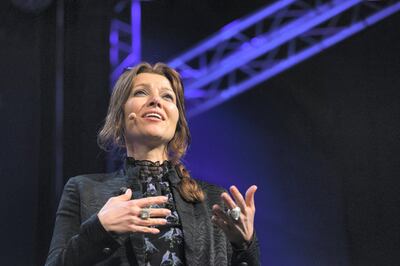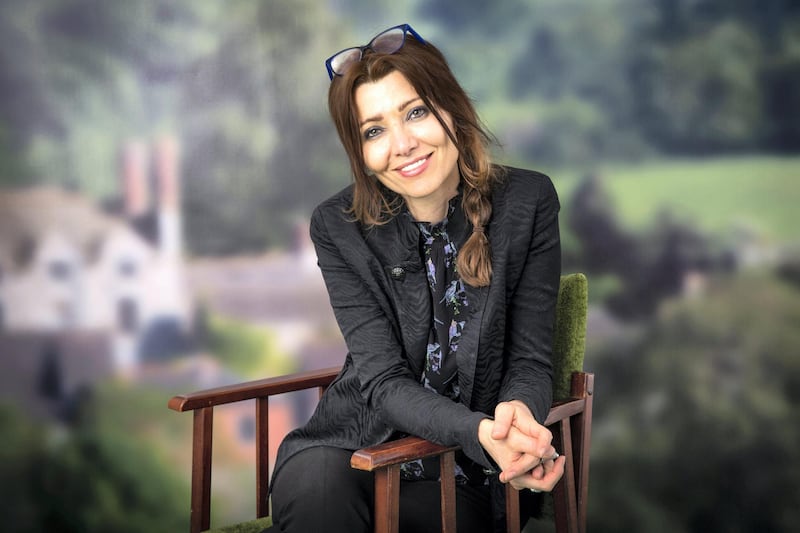Writer Elif Shafak has responded to a government investigation and social media campaign in Turkey that is against her work, and that of others who address the subject of sexual violence.
Speaking to audiences at the Hay Festival in the UK, the novelist referred to the rise in gender-based violence caused by Islamic fundamentalism in her native country, saying that with such campaigns against her, the country is failing to address the real problems of Turkish society.
“Turkey is suffering from the increase of violence against gender and violence against children, but it is not changing,” she said at Hay in conversation with BBC journalist Rosie Goldsmith. If women go to the police to report violence against them, the police will deflect attention onto another matter of purported social morality: “‘Your skirt is too short’, they will say.”
Shafak's work has been caught up in a social media furore sparked earlier this week by the publication on Twitter of a scene by Turkish author Abdullah Sevki of sexual assault against a child.
The government's department of culture and tourism launched an investigation against Sevki, and social media users in Turkey began a campaign of abuse against him and others, such as Shafak, who have treated similar subjects.
Shafak has published 16 books in both Turkish and English, and has garnered a list of accolades even longer, such as the Chevalier des Arts et Lettres, which she was awarded in 2010.
Her latest book
Her works often dramatise the situation of mothers and daughters, from Honour, about an honour killing within a Turkish family in London, to her most recent book, 10 Minutes 38 Seconds in This Strange World, which she launched at Hay.
The latter concerns the imagined situation of a prostitute found dead in a dumpster in Istanbul, and was inspired, Shafak said, by the city’s Cemetery of the Companionless. The graveyard is marked only by numbers, and is the final resting place of those who were either shunned in death or who died with no one around them: AIDS victims in the 1990s, suicides, abandoned babies, and more recently, the bodies of drowned Afghan and Pakistani refugees.
But Leila, the hero of 10 Minutes 38 Seconds, is not even accorded that honour of an unmarked grave, and the book charts her transformation from being the daughter of a conservative household in eastern Turkey to her life as a sex worker.
10 Minutes 38 Seconds continues Shafak's treatment of difficult issues in Turkish society. The story ends in 1990, Shafak notes, as that was the last time women were able to stop legislation that further harmed them: halting a change that would have reduced the charge against a rapist if the victim was a sex worker (Article 438).

A frequent target of criticism from the Erdogan government
The author is now based in London and has frequently been a target of criticism from the Erdogan government and conservative parts of Turkish society. The current case against her turns on her depiction of sexual violence in The Gaze from 1999 and Three Daughters of Eve from 2016.
But Shafak remains insistent about the role that writers can play in bringing attention to the backslide in rights for women in Turkey.
"In countries where there isn’t freedom of speech, books matter more,” she said.
Shafak also gave the Wellcome Book Prize Lecture on Friday at the festival, speaking about the problems surrounding mental health in an age of populism and anxiety. The lecture drew on both her personal experience and political analysis, much like her acclaimed Black Milk, a memoir about her post-partum depression.
The Hay Festival is in its 32nd year; each year the small town on the Welsh borders is transformed into a weeklong gathering for writers and book-lovers, drawing some of the biggest names in literature and journalism to its packed, tote-bag-studded tents.
The Hay Festival ends on June 2













